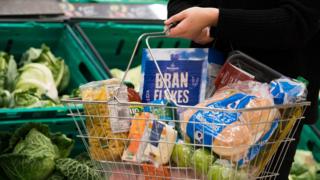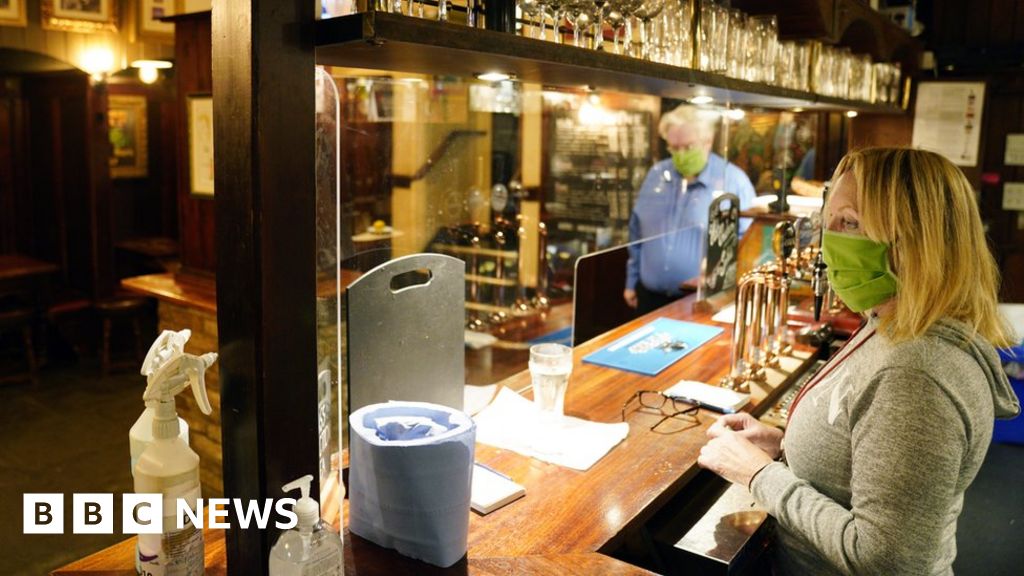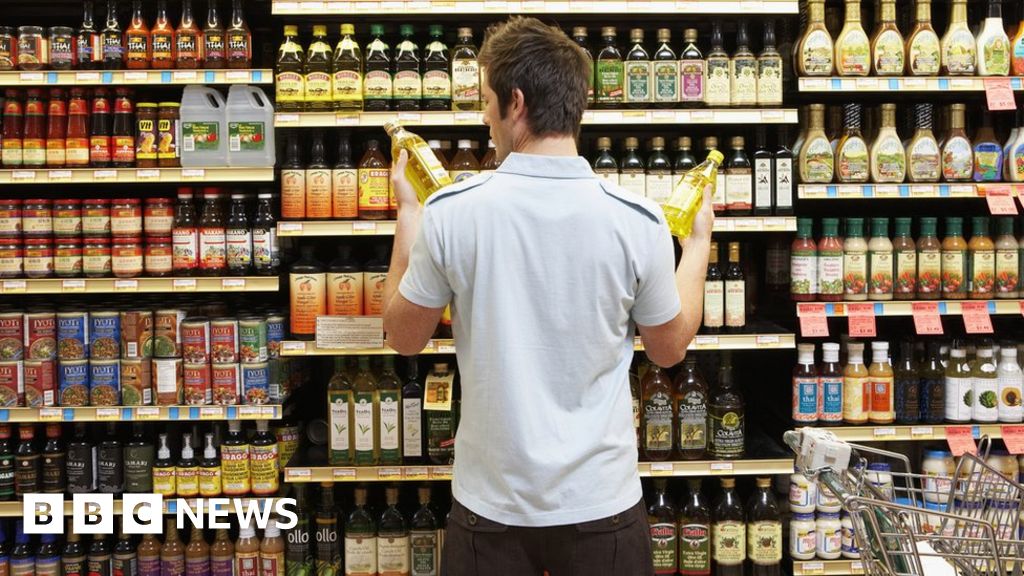 Image copyright
PA Media
Image copyright
PA Media
Sales at Morrisons surged in the first half of its financial year but the supermarket saw profits drop because of coronavirus-related costs.
Morrisons said like-for-like sales, excluding fuel, rose by 8.7% in the six months to the beginning of August.
However, profit fell by more than a quarter after costs rose by £155m to deal with the pandemic, including hiring temporary workers and bonuses.
It also said poor fuel sales hit income as people "took fewer car journeys".
Pre-tax profits dropped by 28.2% to £145m for the six months to 2 August.
However, Morrisons said extra costs associated with coronavirus had been partly offset by four months of business rates relief of £93m,
In March, all UK retailers were given a one-year business rates holiday as the country entered lockdown. The decision prompted criticism because supermarkets have seen sales grow strongly during the pandemic.
Profit was also hit by the shift from customers buying in-store to shopping online where growth was "very substantial", according to Morrisons but generates lower profit margins.
Shoppers also chose to stock-up on lower margin goods such as canned goods and cereals as well as alcohol, instead of more profitable produce such as "food-to-go" and its service counters offering fresh meat and fish.
Sophie Lund-Yates, equity analyst at Hargreaves Lansdown, said that while Morrisons' profit statement "made for pretty ugly reading", she added there was "more than just a light at the end of the tunnel".
Image copyright PA MediaShe said that while the supermarket had a smaller online and delivery business than its rivals, it had grown strongly "and starting from a lower base means there's more room to grow".
Ms Lund-Yates also cited its relationship with Amazon, through which customers can do a full Morrisons food shop via the online retail giant.
Morrisons said total sales for the first half dropped by 1.1% to £8.7bn because of poor fuel sales, which sank by 37.4%. It said demand was "severely affected during lockdown and the immediate aftermath by the impact of Covid-19".
However, it said fuel sale volumes had been "gradually recovering" during the May-to-July quarter.

 5 years ago
891
5 years ago
891 

